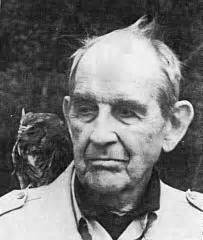A Quote by Peter Farb
No child is capable of speech until he has heard other human beings speak, and even two infants reared together cannot develop a language from scratch.
Related Quotes
The more familiar two people become, the more the language they speak together departs from that of the ordinary, dictionary-defined discourse. Familiarity creates a new language, an in-house language of intimacy that carries reference to the story the two lovers are weaving together and that cannot be readily understood by others.
Text input is certainly useful, but images and speech are a much more natural way for humans to express their queries. Infants learn to see and speak well before they learn to type. The same is true of human evolution - we've had spoken language for a long time compared to written language, which is a relatively recent development.
The Creation speaks a universal language, independent of human speech or human language, multiplied and various as they be. It is an ever-existing original, which every man can read. It cannot be forged; it cannot be counterfeited; it cannot be lost; it cannot be altered; it cannot be suppressed. It does not depend upon the will of man whether it shall be published or not; it publishes itself from one end of the earth to the other. It preaches to all nations and to all worlds; and this Word of God reveals to man all that is necessary for man to know of God.
A person is a person through other persons. None of us comes into the world fully formed. We would not know how to think, or walk, or speak, or behave as human beings unless we learned it from other human beings. We need other human beings in order to be human. I am because other people are. A person is entitled to a stable community life, and the first of these communities is the family.
The statement "I am in pain" may be one piece of evidence for the conclusion that the speaker is in pain, but it is not the only possible evidence, and since people sometimes tell lies, not even the best possible evidence. Even if there were stronger grounds for refusing to attribute pain to those who do not have language, the consequences of this refusal might lead us to reject the conclusion. Human infants and young children are unable to use language. Are we to deny that a year-old child can suffer?
Still I believe that Hanna Arendt, she was wrong when she tried to say that we are all actually capable of this, it's not true. I think it's not true. There are certain things human beings are not capable of. I mean people, even normal human beings. You have to do certain things in order to become what the enemy was and I didn't accept her philosophical outlook on that.
The continually progressive change to which the meaning of words is subject, the want of a universal language which renders translation necessary, the errors to which translations are again subject, the mistakes of copyists and printers, together with the possibility of willful alteration, are themselves evidences that human language, whether in speech or print, cannot be the vehicle of the Word of God.
Short story writers simply do what human beings have always done. They write stories because they have to; because they cannot rest until they have tried as hard as they can to write the stories. They cannot rest because they are human, and all of us need to speak into the silence of mortality, to interrupt and ever so briefly stop that quiet flow, and with stories try to understand at least some of it.


































